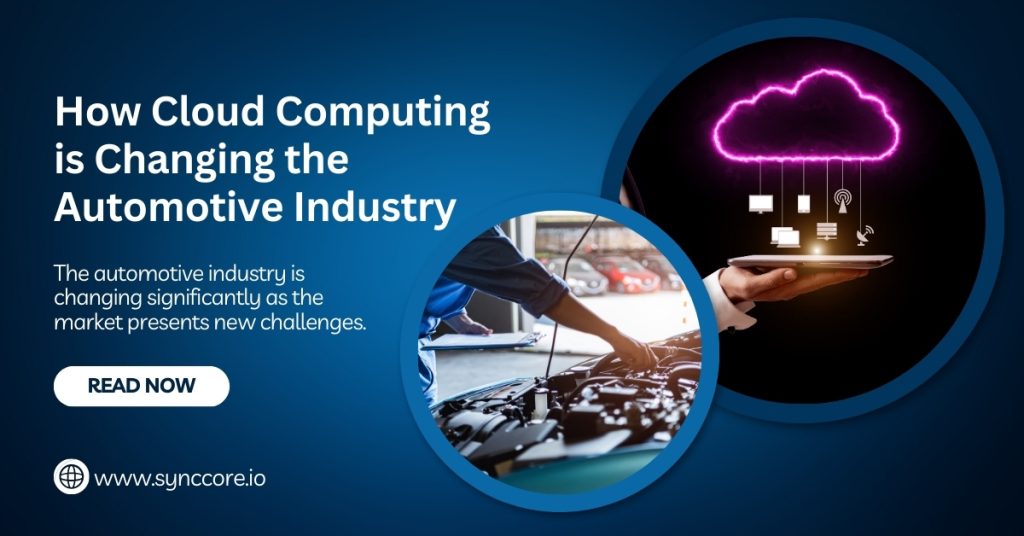The automotive industry is changing significantly as the market presents new challenges. There is fierce competition, and new technological innovations are defining the sector’s new face.
Cloud computing is one such revolutionary change in how these companies’ IT assets transform data recording, storage, processing, and associated costs.
Cloud computing entails transferring your data to the internet via remote servers. This single step can be a critical component of a long-term strategy for improved data management and security.
For a long time, there has been debate about the utility and effectiveness of cloud computing in the automotive industry, so let us investigate the answers to these critical questions here.

Table of Contents
Security & Risk Reduction
Seeing as cloud computing has a dedicated expert staff whose 24X7 job is to take care of the systems and their security, the risk of failures, hacks, and breakdowns is significantly reduced.
Backing up your data regularly protects you from accidental deletion. Regular workshops and user assistance also reduce the occurrences of data damage and errors.
These experts also conduct regular system trials and work around the varying demands of the clients, reducing downtime.
Cabin Systems
Cloud computing can improve the performance of in-car GPS and entertainment systems.
There is a lot of research going on to make cars intelligent and wise enough to handle a variety of road and traffic situations.
Such controls and continuous information feed necessitate the constant and on-demand readiness of systems, which the cloud can provide.
Complexities of the Automotive Sector
Compared to other manufacturing facilities, the auto sector has unique requirements.
Large engineering simulations, analytics, data, and dealer networks are central to the needs of the auto industry, and these consolidated needs necessitate very powerful infrastructure, whose upkeep can be difficult for even the most experienced engineers.
Super servers can fix these problems in cloud computing. On-demand storage is provided, and the process for customizing the system to meet your needs is quick and easy to implement.
Reduction in Costs
An organization must pay for managing onsite IT hardware in terms of labor, power use, hardware repair, and depreciation.
With cloud computing, the server is located remotely, and your service provider oversees maintaining it, not you. In addition to the associated costs, cloud computing also eliminates the hassle of maintaining your infrastructure to date.
Another advantage of cloud computing is that you can precisely specify your needs and only pay for what you require.
Protection from Natural Disasters
What appears online is said to remain there permanently. This is advantageous for the manufacturing industry because your data is safe and unharmed even in the event of a natural disaster like a hurricane, storm, or earthquake.
Cloud computing has the potential to improve, speed up, and secure data processing and storage for the automotive industry. While giving the user cost savings, it lowers the risks of data loss.
The automotive industry can consider leveraging opportunities presented by this system given the intense competition and rising cost of raw materials.
SyncCore assists organizations with traditional IT models in taking advantage of the flexibility provided by the Cloud and improving cost-savings.



